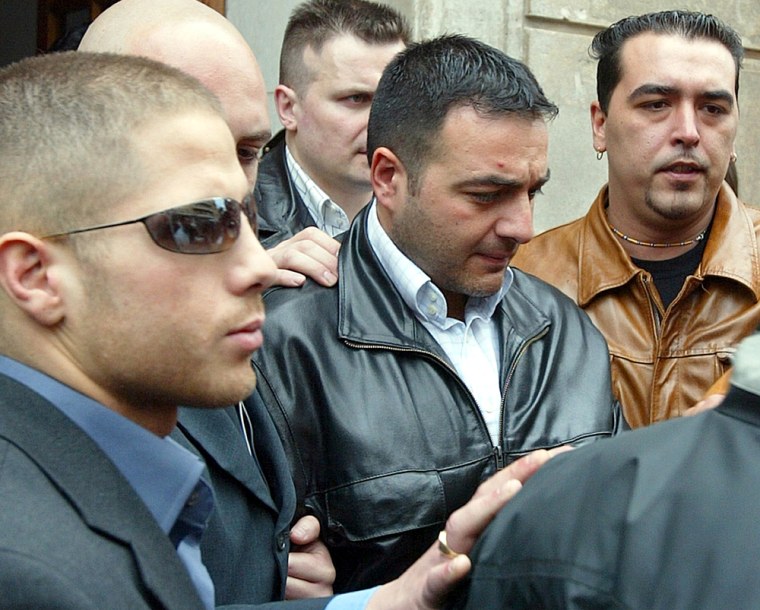The shocking news of the killing of Fabrizio Quattrocchi, one of four Italian security guards abducted in Iraq earlier this week, dominated this country late Wednesday night. But, by Thursday morning that reaction had turned into national outrage.
Newspapers carried eight-column banner headlines: “ITALIAN HOSTAGE KILLED,” “SHOT IN THE HEAD, FIRST TO DIE,” “HORROR IN IRAQ,” “HOSTAGE ASSASSINATED.”
The story, first reported with the brutal immediacy of live television, made a more lasting impression with the tragic print headlines.
Quattrocchi was hailed as an Italian hero, particularly for his defiant last moments caught on videotape when his kidnappers pointed a gun to his head, threatening him with certain death, and he stoically stated, “I’m going to show you how an Italian dies.”
Country united by outrage
Surprisingly, in a country where two-thirds of the people are opposed to the war and the opposition has been highly critical of the government’s support of U.S. policy, political reaction was remarkably unified.
From right to left Italian leaders concurred that despite the tragedy of the dead hostage, and the horror hanging over the three living ones, Italian policy can not be dictated by terrorists. Kidnapping citizens, they agreed, must not be allowed to hijack the will of the entire nation.
Berlusconi made clear the government had no intention of withdrawing the 3,000 Italian troops in Iraq, the third-largest contingent after the United States and Britain.
“They have cut short a life. They have not damaged our values and our commitment to peace,” Berlusconi said.
While the kidnappers’ demands of an immediate withdrawal of Italian troops are unrealistic, in their grief-stricken desperation, the surviving hostages’ families demanded the government do something.
One hostage’s brother was able to put Foreign Minister Franco Frattini on the spot asking him that question on live television. But there was little Frattini had to say when the man demanded what the government would do. Frattini’s response that they would try as hard as they could was hardly convincing.
Quattrocchi worked for a U.S.-based security company, like two other Italian hostages. The fourth captive was employed by a Seychelles-based firm, Frattini said. They were kidnapped Monday.
Wave of foreign kidnappings
Part of the problem is that nobody knows this terror group, so Italian officials don’t even know who to talk to in order reach them. Italy has long nurtured good relations with Iran, so its leaders have appealed to Shiite leaders in Tehran to reach out on their behalf.
The impression officials here are making is that they really don’t know what to do beyond reiterating both firmness and concern.
The Italian hostages are just one part of a wave of foreign abductions in the last week. The abduction of more than 40 individuals from journalists to aid workers has sent shock waves through the foreign community in Iraq and particularly the coalition forces as Japanese, South Koreans, Americans, French, Canadians and Israelis have been kidnapped. Most of those kidnapped have been released, but the murder of Quattrocchi revealed the grim fate that is still a possibility for many of the captives.
Vatican speaks out
Monsignor Fernando Filoni is the pope’s apostolic nuncio (Vatican ambassador) to Iraq. He has stuck it out in Baghdad through the past three years.
Papal nuncios have often been involved in hostage negotiations around the world as they are often seen as impartial go-betweens. Bishop Filoni said the church there would make a tremendous effort to help in the hostage release, but he emphasized the difficulty. “The problem is the negotiation. Who do we negotiate with? First we have to understand who the kidnappers are. Shiites? Sunni? Everybody here says they act in the name of Allah.”
The three men held captive by the “Mohammed’s Phalange” are certainly praying that someone can figure it out.
